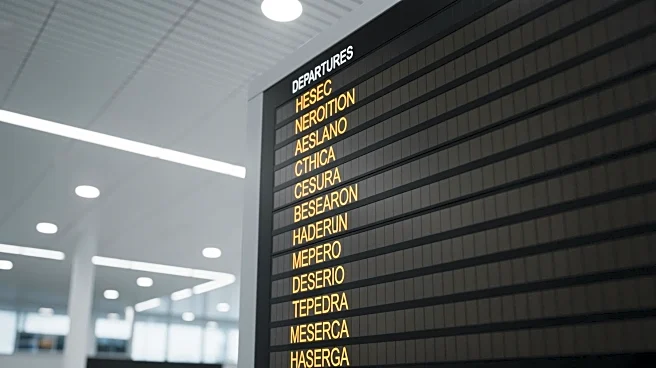What's Happening?
Miami International Airport is considering the feasibility of establishing nonstop flights to Tokyo, Asuncion, Riyadh, and Singapore. This initiative is part of the Miami-Dade Airport Committee's agenda,
aiming to enhance Miami's international connectivity and attract more long-haul routes. The committee has directed the County Attorney Mayor to assess the feasibility of direct passenger or cargo flights to these cities and, if feasible, to solicit such flights from appropriate carriers. The resolution highlights the economic significance of these destinations, with Asuncion being a rapidly growing economy in Latin America, Riyadh transforming into a global economic hub, and Tokyo and Singapore being leading world economies.
Why It's Important?
The potential establishment of these nonstop flights could significantly boost Miami's status as an international travel hub, enhancing its connectivity with major global cities. This could lead to increased tourism and business travel, benefiting local businesses and the economy. Direct flights to Tokyo and Singapore, in particular, could open new opportunities for trade and cultural exchange, while flights to Asuncion and Riyadh could strengthen economic ties with Latin America and the Middle East. The initiative reflects Miami's strategic efforts to position itself as a key player in global aviation and commerce.
What's Next?
If the feasibility studies are positive, Miami International Airport will proceed with efforts to solicit flights from carriers. The mayor or mayor’s designee will provide quarterly updates on the progress of these projects. The success of this initiative will depend on negotiations with airlines and the economic viability of these routes. Stakeholders, including airlines and local businesses, will likely monitor developments closely, as the establishment of these routes could have significant implications for Miami's international connectivity and economic growth.
Beyond the Headlines
The pursuit of these new routes highlights the competitive nature of global aviation, where airports vie for strategic connections to enhance their status and economic impact. The initiative also underscores the importance of international cooperation and negotiation in expanding air travel networks. As Miami seeks to establish these routes, it may face challenges related to airline capacity, market demand, and geopolitical factors influencing travel and trade.











